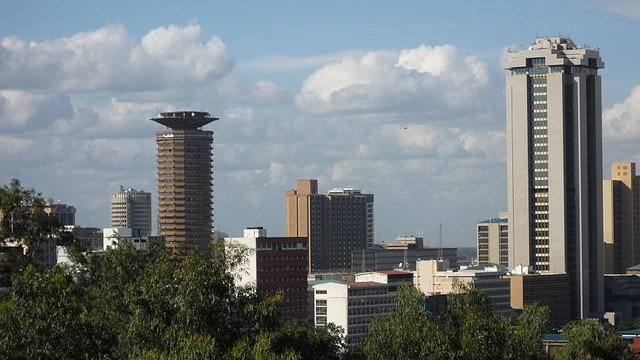Although leisure tourism in Kenya has been badly affected by recent violence, the country’s popularity as a business destination does not show any signs of waning.
In fact, Kenya has been ranked second in Africa for business tourism, even as a series of terror attacks committed by al-Qaeda linked militants al-Shabaab have caused tourists to stay away in droves.
The east African country’s capital city, Nairobi, comes in third place for business tourism in Africa after Cape Town and Durban, according to the International Congress and Convention Associations’ (ICCA’s) report of business tourism destinations worldwide.
The ICCA report, released in the first half of May 2014, offers some hope for Kenya’s tourism industry, which suffered an 11.7% decline in tourist numbers in 2013 for the third consecutive year.
The decline has been attributed to increased terror attacks – including the September 2013 attack in Nairobi’s upscale Westgate Mall – and the introduction of value added tax (VAT) on tourism services that were previously exempt.
The ICCA report came just days after U.S., U.K., France and Australia issued travel advisories to their citizens cautioning against non-essential travel to parts of Nairobi and Mombasa.
With the disappointing coastal and safari tourism figures now becoming a yearly fact of life, focus on Kenya’s business tourism potential is inevitable.
“Proximity to Europe and the Middle East gives Kenya a certain advantage over more southern climes like South Africa,” The South African reported. “A flight from Dubai to Nairobi is around five hours, for example. Around 26 airlines currently have scheduled passenger flights to and from JKIA.”
Although a premier destination for meetings and conferences – with due credit to the Kenyatta International Conference Center – limited bed capacity remains a challenge.
“Nairobi’s bed capacity ‘stands at about 3,000 quality beds’,” according to an article published in The South African in late 2013.
The Kenya Tourism Board (KTB) acknowledges that bed capacity remains a challenge, especially when hosting large international conferences. But Kenya’s situation is not an isolated one. The issue of inadequate bed space for tourists spans most African countries to a greater or lesser extent.
International hotel chains have been watching Africa’s demand for conferencing and accommodation facilities as it soars to record levels, and are now seeking to cash in. Over the past three years, many hotel brands have set up shop in Kenya, mostly in Nairobi.
In May 2013, Hemingways, targeting the business traveler, opened a 45-room hotel valued at $17 million in the upscale Karen neighborhood. A month later, U.S.-based hotel chain Best Western opened its Nairobi property. A few months later, in September 2013, Villa Rosa Kempinski opened the doors on its 200-room multi-billion dollar establishment to the public.
And there are plenty more in the pipeline. Dusit International, which is headquartered in Thailand, will soon open its 190-bed DusitD2 Hotel in Nairobi’s upmarket Lavington area. It will feature a spa, gym and conference facilities among others. Radisson, an American chain is also poised to open a property in Nairobi before the end of the year. The 276 room hotel will feature a health club, a 600-square-metre ballroom, an all-day restaurant, and a grill. And according to the Business Daily, Accor, a global hotel chain, plans to add 5,000 new rooms in Kenya.
The growth of such high-profile, business-oriented properties in Nairobi seems guaranteed to continue Kenya’s ascendancy as a premier business tourism destination in Africa, and may even help it offset the losses in leisure tourism.

